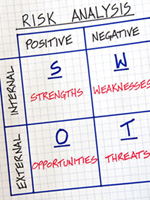The easy way to set up a small business in France: The auto-entrepreneur status
Owners of property in France sometimes wish to make some extra cash by setting up a small business.
Economic gloom in France has prompted the passing of a statute in 2008 permitting the setting up of a small business in an extremely simplified way and with an attractive tax regime.
In a nutshell, the main features of the “auto-entrepreneur” status, as it is called, are as follows:
– There is no minimum capital required and no need to set up a company. The legal status applicable is that of “individual enterprise” (“entreprise individuelle”). There is no limitation on liabilities, but it is possible to render unattachable one’s main residence and any other real estate assets by way of declaration before a notaire, provided that they are not affected to a professional usage.
– The tax and social regimes are that of “micro-enterprises” (see below).
– The creation and de-registration are extremely simplified and can be done over the internet.
– This status is only available if the annual turnover does not exceed 80,000 € before tax for activities of sale of goods, of food to take away or to consume on the premises, or of supply of accommodation. The maximum turnover is 32,000 € for services taxed in the categories of “industrial and commercial profits” (“BIC”) or “non commercial profits” (“BNC”). This would apply, for example, to activities of services to the person.
Social charges and tax: one great feature of the status is that if there is no turnover or profits, there are no tax and social charges.
Social charges are that under the “micro-social” regime and consist in a fixed rate, payable monthly or quarterly (at your choice), as follows for 2009:
– 12% for a commercial activity;
– 21.3% for a services activity;
– 18.3% for a liberal activity (eg: consultant).
No deductions are possible for the purpose of application of these rates.
Tax is that under the “micro-fiscal” regime (subject to conditions of maximum income) and consists in a fixed rate, payable monthly or quarterly (at your choice), as follows for 2009:
– 1% if the main activity is the sale of goods, of food to take away or to consume on the premises, or the supply of accommodation;
– 1.7% if the main activity is other than those falling under the 80,000 € ceiling, such as services;
– 2.2% for certain services, taxable in the “industrial and commercial profits” services.
No deductions are possible for the purpose of application of these rates.
If the maximum income condition is not met, the applicable tax regime will be that of “micro-entreprise”, which is a progressive tax, applied after a fixed deduction.
TVA: the auto-entrepreneur is not liable for TVA.
Professional tax (“taxe professionnelle”) : not applicable for the year of creation of the business and two years thereafter.
Declaration of start of activity :
All that is needed is to fill in a one page form and to send it back with a photocopy (or scanned copy) of your passport certified by you (with the words ”J’atteste sur l’honneur que cette pièce est conforme à l’original”) which must be dated and signed. For commercial or craft activities, you must declare the activity at the Centre de Formalités ses enterprises (“CFE”) (http://annuaire-cfe.insee.fr/AnnuaireCFE/jsp/Controleur.jsp ) or at the URSAFF for liberal activities (https://www.cfe.urssaf.fr/autoentrepreneur/CFE_Bienvenue ).
The CFE will then forward all necessary information to the various administrations, including the tax administration. You will then receive a SIREN number (identifying your enterprise) from the INSEE. As soon as this is received, you can start your activity. You will also receive a SIRET number (of which the SIREN number is part).
Management:
Accounts: you must of course keep accounts, but there is no need for the accounts to be certified by a chartered accountant. It is important to note that as the fixed tax and social charges rates are a percentage of the turnover and not of profits, no costs can be deducted (such as amortization, salaries paid to employees, etc.).
Bank account: it is not compulsory but highly recommended to open a bank account specifically for the business and distinct from your personal account, in order to identify operations easily. It does not have to be a professional paying account, an ordinary free individual account will do.
Insurance: although it is not compulsory for every activity, it is of course highly recommended to subscribe an insurance policy covering damage to third parties, damage to property, IT risk (loss of data…), legal costs protection (in case of law suit). The simplest is to subscribe a “multi-risk’ policy covering most of the risks pertaining to the activity.
Premises: you can buy or rent premises specifically dedicated to your activity, or use the services of a business center, which can supply a registered address, meeting rooms and support services (secretarial, etc.).
The auto-entrepreneur status is a very convenient tool to start an activity for foreigners who are not in France all year round but yet still want to generate some income, eg by running a gite or chambre d’hôte. If it later becomes successful, it is always possible to easily deregister it and to set up a company.
Hervé Blatry
Avocat
TEE FRANCE
STANLEY TEE LLP
High Street
Bishops Stortford
Herts CM23 2LU
Tel 01279 710621 and 01279 710654


